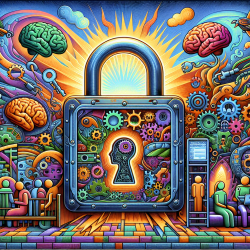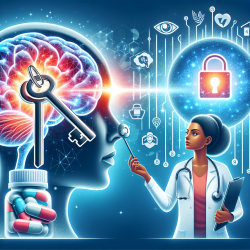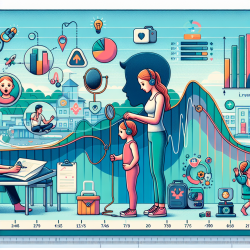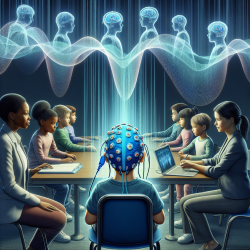Enhancing Therapy Skills with Memory Research
As a practitioner in the field of special education, understanding the intricacies of memory can significantly enhance your therapeutic skills. The recent research article titled Prospective memory, retrospective memory, and individual differences in cognitive abilities, personality, and psychopathology offers valuable insights that can be applied to improve therapy outcomes.
Understanding Prospective and Retrospective Memory
Prospective memory (ProM) involves remembering to perform a planned action in the future, such as remembering to attend a meeting or take medication. Retrospective memory (RetM), on the other hand, involves recalling past events or information. The study highlights the importance of using continuous measures of episodic event-cued ProM, which are found to be more reliable than binary measures.
Key Findings of the Research
- Continuous measures of ProM are more reliable than binary measures, providing a better understanding of individual memory capabilities.
- ProM is associated with cognitive functions such as processing speed, working memory, and intelligence, similar to RetM.
- Personality factors do not significantly predict ProM or RetM beyond cognitive abilities.
- Symptoms of psychopathology slightly influence RetM but not ProM.
- Gender differences are negligible in ProM but slightly present in RetM.
Implications for Practitioners
For practitioners, these findings emphasize the importance of focusing on cognitive abilities when assessing memory-related tasks in therapy. By understanding the role of cognitive functions, therapists can tailor interventions to enhance memory performance in students, particularly those with special needs.
Moreover, the study suggests that personality traits and psychopathology symptoms should be considered secondary factors in memory assessments. This insight can help therapists prioritize cognitive training and support strategies that bolster memory retention and recall.
Encouraging Further Research
While this study provides a comprehensive overview of memory functions, it also highlights the need for further research, especially in naturalistic settings and across diverse populations. Practitioners are encouraged to explore these areas to gain a deeper understanding of how memory functions can be optimized in real-world scenarios.
For those interested in delving deeper into the research findings, the original paper offers a detailed exploration of the methodologies and results. Prospective memory, retrospective memory, and individual differences in cognitive abilities, personality, and psychopathology.
Conclusion
Incorporating the insights from this research into your practice can lead to more effective therapy sessions and improved outcomes for students. By focusing on cognitive abilities and understanding the nuances of memory, practitioners can develop targeted strategies that enhance learning and retention in educational settings.










